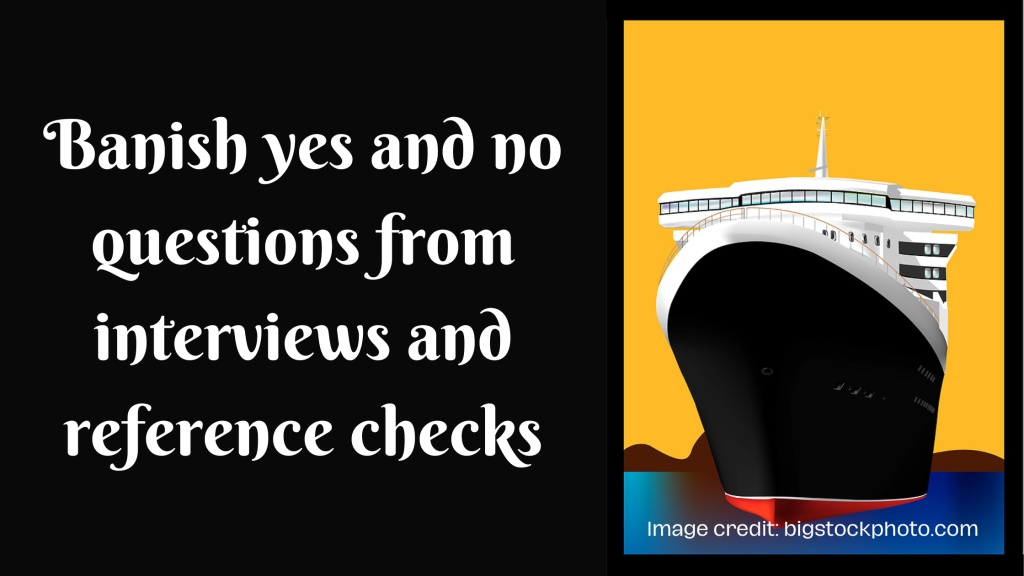Could you carry on a conversation for three minutes without using Yes or No?
Responding to this challenge was the essence of the Yes/No Game played by cruise passengers on the Diamond Princess, this past fall.
The game was also a reminder to anyone who is hiring to avoid asking questions during interviews or reference checks that could be answered with a single word.
The cruise director who hosted the game in one of the ship’s lounges invited participants to engage in a three-minute conversation with her, without uttering either word.
The prize: a bottle of wine. And for competitors who failed: an origami crane. Most left the lounge with a paper crane in hand.
Participants tried to avoid the two prohibited words but most fell short. A typical conversation went something like this:
Host: Where are you from?
Participant: Toronto.
Host: Is that a nice place to live?
Participant: Yes.
Game over! In less than five seconds.
Interviews can go wrong when interviewers ask questions that can be answered with just one word:
“Do you feel teamwork is important?”
“Was ABC Corporation a good place to work?”
“If we were to hire you, how long would you stay?”
And during reference checks:
“Would you describe Andy as well-organized?”
“Did Anita work well with her colleagues?”
“Would you hire Joe again?”
There are two reasons the above questions don’t work.
First, where do you go next if the candidate replies, “Yes”?
Even respected media interviewers can fall into the Yes/No question trap, as occurred when MSNBC host Rachel Maddow was interviewing U.S. Senator Elizabeth Warren.
Warren simply answered, “Yes” when asked if she would accept an invitation to be Joe Biden’s 2020 running mate, followed by silence when the senator didn’t add to her response.
Finally, Maddow was able to escape this awkward moment in a way not available during hiring interviews. She went to a commercial.
The second problem is that all these questions ask for the candidate or reference’s opinion, when you should be using interviews and reference checks to gather evidence. Specifically, you’re looking for evidence about the candidate’s past performance that will enable you to form an opinion about whether the candidate is the right person to hire, or not.
Some of those questions can be fixed, but others are not worth asking in any form.
Asked if teamwork is important, most candidates will assume that if you are asking, teamwork must be important to you. Hence, the “correct” answer is “Yes.” Teamwork is important to them.
Better to ask candidates to “describe a time when you were a member of a work team” or to ask references to “provide an example of a time when Anita collaborated with a colleague or colleagues.”
By asking candidates for their assessment of their previous employers or how long they would commit to stay if hired, you’ll get answers unlikely to yield any information that will be useful to you when deciding which candidate is the right person to hire.
Finally, there is that question about whether the reference would rehire this individual. There is no reason to ask that question.
References are strangers to you, carefully selected and coached by candidates to portray them in the best light. Even if references provide their honest assessment of the individual’s performance, you don’t know the criteria they use to judge employees. Hiring decisions should not be based on the opinion of strangers.
These is a question that requires only a one-word response to keep in mind when making hiring decisions:
Whose is the only opinion that matters when hiring for your organization?
Answer: YOURS!
==
How to ask questions during interviews and reference checks is one of the topics covered during Interview Right to Hire Right workshops. Please contact Nelson (nmscott@telus.net or 780-232-3828) to schedule an Interview Right to Hire Right workshop for your leadership team or to learn more about this training.

